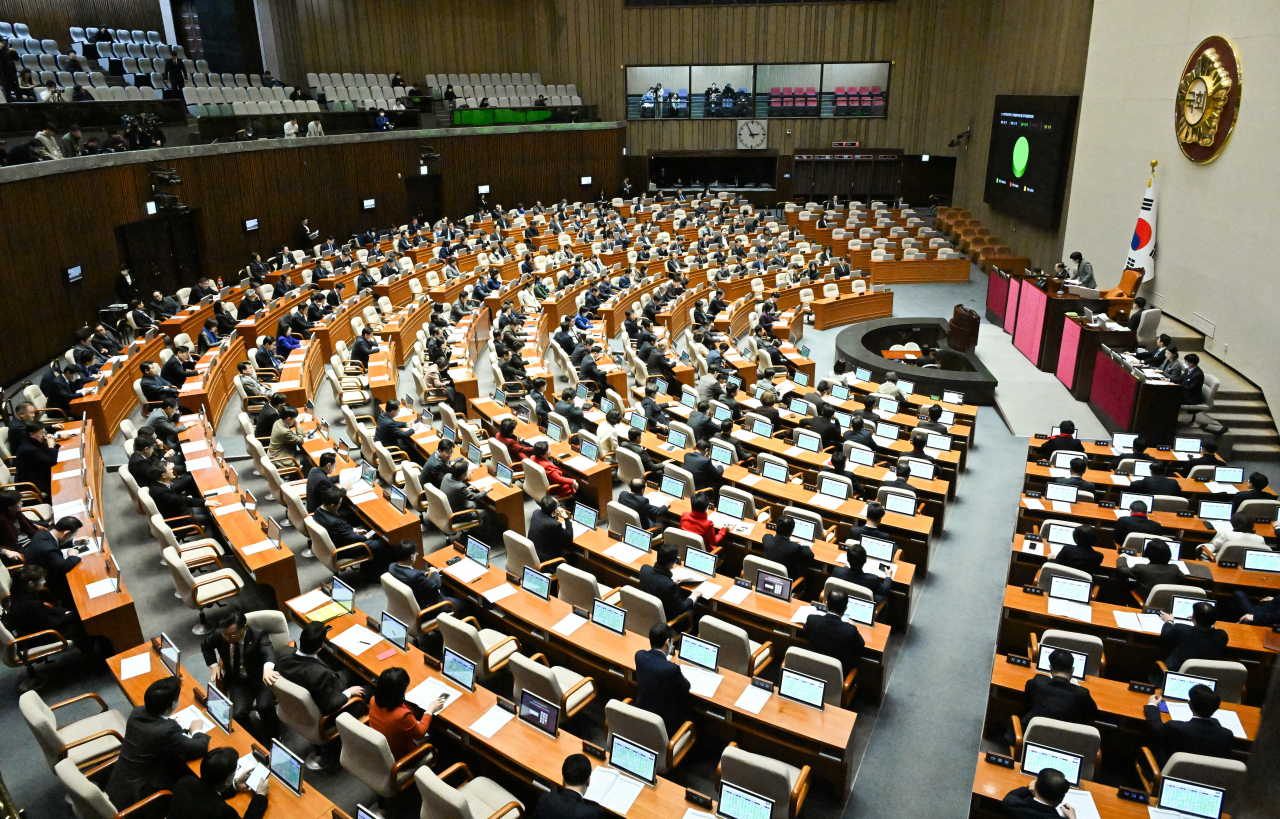[Election 2024] What 200 seats means in Korean politics
Presidential impeachment, Constitution amendment become achievable for a party holding a two-thirds majority in Assembly
By Lee Sun-youngPublished : April 10, 2024 - 20:19

In South Korea’s relatively short history of democracy, no single political force has ever attained a two-thirds majority in the National Assembly.
The number is critical, because a group controlling 200 of the unicameral Assembly’s 300 seats can override any presidential veto, rewrite the Constitution, and even impeach the president, although the last two require confirmation via a referendum and the Constitutional Court, respectively.
Exit polls, conducted by the nation’s three major broadcasters and released after voting ended at 6 p.m. Wednesday, suggested South Korea may be headed toward such a scenario, with the Democratic Party of Korea and its liberal allies winning close to 200 seats.
In the 2020 elections, the main center-left parties had bagged 180 seats out of 300. Despite losing several seats since the election, the party had held onto a majority position throughout the 21st National Assembly.
Despite the dominant position, however, the Democratic Party’s campaign to single-handedly push for some controversial bills had often been blocked by President Yoon Suk Yeol’s use of his vetoing rights. Examples include a motion to launch a special counsel investigation into allegations surrounding first lady Kim Keon Hee.
The liberal bloc, if it really wins 200 seats or more, either alone or through an alliance, could override Yoon’s vetoes.
Not only that, with the two-thirds threshold secured, it could theoretically push for the impeachment of Yoon.
Moreover, amendment of the Constitution would become within reach for the party, possibly to shorten the current five-year presidential tenure or change the country’s governance system to a parliamentary one, from the current presidential system.





![[KH Explains] No more 'Michael' at Kakao Games](http://res.heraldm.com/phpwas/restmb_idxmake.php?idx=644&simg=/content/image/2024/04/28/20240428050183_0.jpg&u=20240428180321)



![[Grace Kao] Hybe vs. Ador: Inspiration, imitation and plagiarism](http://res.heraldm.com/phpwas/restmb_idxmake.php?idx=644&simg=/content/image/2024/04/28/20240428050220_0.jpg&u=)










![[Herald Interview] Xdinary Heroes shoot for the next level with 'Troubleshooting'](http://res.heraldm.com/phpwas/restmb_idxmake.php?idx=642&simg=/content/image/2024/04/29/20240429050745_0.jpg&u=)